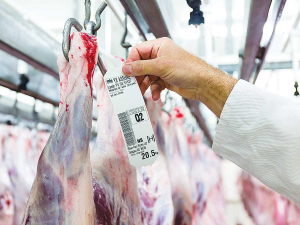NZ Red Meat Outlook 2026: Growth amid trade uncertainty
While things are looking positive for the red meat sector in 2026, volatility in global trade remains a concern, says the Meat Industry Association (MIA).
 The meat industry says the Government's seizure of Rapid Antigen Tests (RAT) from meat companies could force the closure of some processing plants if staff contract the Omicron variant.
The meat industry says the Government's seizure of Rapid Antigen Tests (RAT) from meat companies could force the closure of some processing plants if staff contract the Omicron variant.
The Government's so called 'consolidation of Rapid Antigen Tests (RAT) from meat companies has the potential to force the closure of some meat processing plants if staff contract the Omicron version of Covid.
Many meat processing companies took the precaution of purchasing their own RATs as a means of protecting their staff and keeping their works going in a Covid outbreak. However, because, on the Government's behalf, the Ministry of Health failed to get sufficient supplies in on time, it effectively pilfered what it could from the private sector.
Meat Industry Association (MIA) policy manager Paul Goldstone told Rural News that meat companies had purchased the now Government-appropriated RATs as a means of screening workers and preventing the virus getting into plants. He says an Omicron outbreak would be disastrous for the sector and could lead to whole plants being closed down.
Goldstone says the RAT issue is also linked to the rules around home isolation. He points out some workers live in households where there are large numbers of people of varying age groups, who all work in the meat sector.
Goldstone says the current government rules on isolation pose a serious risk to the meat industry.
"We have been pushing hard for some realism with the current criteria," he told Rural News. "A single positive case of Covid in a worker or a household member could result in that entire household being isolated for 10 days."
Goldstone says this could see large parts of a plant being put into isolation and likely shut down.
"We were going to be using RATs to act as a form of screening to prevent infected workers getting on site," he explains. "The meat companies purchased RATs to minimise this risk, but without them, plants are now at risk and so are valuable meat exports."
Agrisea NZ has appointed Craig Hudson as it's new chief growth officer.
State farmer Landcorp, trading as Pamu, is a forecasting a full-year net profit of around $100 million.
Tony Aitken, chief executive of Ruralco, has been awarded the Excellence in Business Leadership Award at the ANZ Business of the Year Awards.
Global trade has been thrown into another bout of uncertainty following the overnight ruling by US Supreme Court, striking down President Donald Trump's decision to impose additional tariffs on trading partners.
Controls on the movement of fruit and vegetables in the Auckland suburb of Mt Roskill have been lifted.
Fonterra farmer shareholders and unit holders are in line for another payment in April.

OPINION: Here w go: the election date is set for November 7 and the politicians are out of the gate…
OPINION: ECan data was released a few days ago showing Canterbury farmers have made “giant strides on environmental performance”.